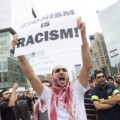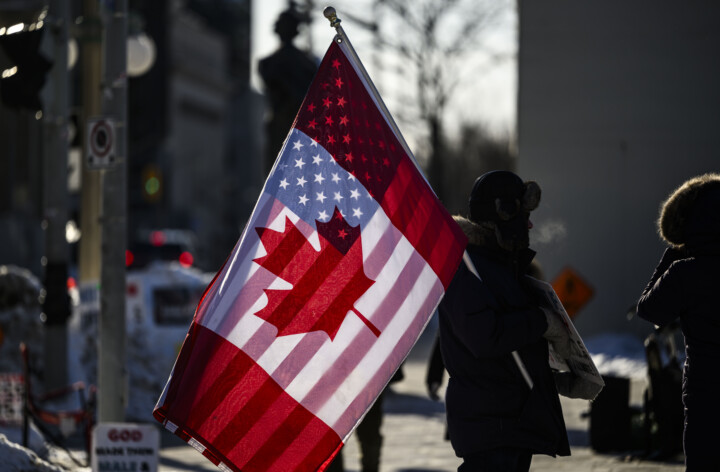The need for fact-based, good-faith discussion and exchange to address our most challenging policy issues has never been greater. Universities should be ideally suited for a leading role, yet in recent months, the drumbeat of intolerance has undermined their ability to do so. Last week, the well-documented rise of antisemitism and anti-Zionism on North American campuses hit home as I was conducting a global exchange that brought together students from five continents representing a remarkably diverse array of religious, political, and technical backgrounds.
For the past 12 years, I’ve led an intensive global technology law course jointly conducted by three universities: the University of Ottawa, the University of Haifa, and Bocconi University in Milan. This year’s course was hosted exclusively in Canada and included visits from current and former government ministers, Supreme Court justices, ambassadors, privacy commissioners, and regulators. The students developed a deep understanding of the complexities of modern digital policies, such as AI regulation and privacy protection.
I wish I could say that technology law was the only focus, but it wasn’t. For the first time, safety precautions kept the course schedule offline, classroom locations remained secret, and guest visits required heightened security reviews.
To top it off, just days after the course commenced, the union representing University of Ottawa professors—my union—narrowly voted to support a boycott, divest, and sanction motion targeting Israeli institutions that, if implemented, could have the effect of banning the Haifa students. Over the course of three hours, colleagues repeatedly cut short debates on child care, union dues, and even the motion itself while claiming a moral and legal obligation to boycott Israeli universities.
I experienced this not as ineffectual virtue signalling, but rather as a real-world destructive policy that would limit academic freedom and the chance for students to learn from each other away from the heat of social media posts that are too often missing both facts and context.
The Ottawa motion is hardly the first of its kind. Indeed, last spring’s campus encampments have seemingly been replaced by faculty motions that place long-standing commitments to institutional neutrality at risk, fuel campus divisions, and reinforce the repeated reports about antisemitism and anti-Zionism that have left many faculty and students ostracized, fearful, and silenced.
Canadian university presidents acknowledged the antisemitism problem last year before government committees, and to their credit, many have acted. The University of Toronto recently released a comprehensive antisemitism policy that notes that “actions directed at individual members of our community because they are Jewish or Israeli, or identify as Zionist, can be harassment, discrimination, and/or violate law or policy.”
McGill University cut ties with its student union after days of protests that included acts of vandalism, intimidation, and obstruction. Queen’s University rejected divestment demands, citing the need to maintain institutional neutrality to fully support the academic freedom of its entire community.
These steps are long overdue, as Canadian universities have been playing catch-up in addressing the rise of antisemitism. Universities Australia, which represents 39 of the largest universities in Australia, has adopted a sector-wide definition of antisemitism that closely aligns with the International Holocaust Remembrance Alliance definition after a government report found an “urgent need for reform” in order to protect Jewish students and professors on campus. U.S. universities, facing heightened political pressure, have also prioritized the issue, and at long last, many are enforcing the law and campus codes on student conduct.
There is still more work to be done since antisemitism concerns are still too often dismissed with callous disregard for the rights of Jewish and Zionist students. Comments and weak responses that would be roundly condemned if the targets involved women, Indigenous students, or BIPOC students have somehow become acceptable as the goal of equality on campus for some includes a glaring exception. Challenging these disturbing developments requires a renewed commitment to institutional neutrality, adoption of clear policies to define antisemitism, and leadership that prioritizes academic freedom for all.
If the Ottawa union vote was the low point of the course, the highlight was meeting with Amit Ganish, an Israeli law student who survived the Hamas attack on the Nova Music Festival on October 7, 2023, by dodging bullets and hiding in a bush for nine hours. After her emotional testimony, the law students began engaging with each other in a manner that made it virtually impossible to distinguish between nationality or religion.
We need more of this form of exchange and the opportunity to learn from one another. Universities can lead the way, but only with a clear commitment to campus equality and by rejecting the demands for institutional boycotts.









